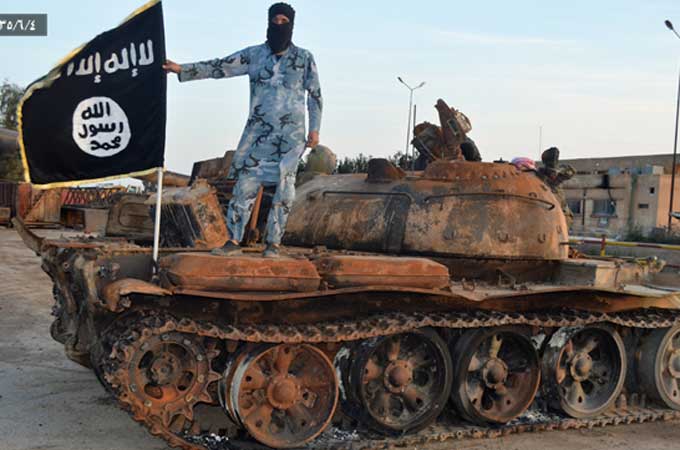For Islamic State All Journalists Are Enemies, Unless Proven Otherwise
It is not just western journalists that the Islamic State is executing

NEW DELHI: As media attention remains focused on the Islamic State for the execution of two American journalists -- James Foley and Steven Sotloff -- the militants, clearly, do not discriminate between nationalities when it comes to the profession.
Within a span of three days, the militants have executed two Iraqi journalists, Muhanad al-Akidi and Raad Mohamed al-Azaoui.
Akidi was killed at the Al-Ghazlani camp in the city of Mosul in Iraq, as reported by Kurdish news site Rudaw. He was a correspondent for the Sada news agency in Mosul and was kidnapped in July on his way to Dohuk province.
A few days earlier, Raad Mohamed Al-Azaoui, a journalist with Sama Salah Aldeen TV was publicly beheaded in Samarra, aftering being held captive by the militants for over a month.
According to Reporters Without Borders, at least “17 Iraqi professional and citizen journalists have been killed in the past 10 months, including four since Islamic State launched its offensive in northern Iraq in June.”
The Committee to Project Journalists (CPJ) has estimated that 20 journalists are missing in Syria - most of whom are Syrian - and are believed to be held captive by the Islamic State.
Most journalists have fled areas under the group’s control, and the few who continue to remain are mandated to follow a guideline issued by the group.
The guideline states:
1 - Correspondents must swear allegiance to the Caliph [Abu Bakr] al-Baghdadi ... they are subjects of the Islamic State and, as subjects, they are obliged to swear loyalty to their imam.
2 - Their work will be under the exclusive supervision of the [ISIS] media offices.
3 - Journalists can work directly with international news agencies (such as Reuters, AFP and AP), but they are to avoid all international and local satellite TV channels. They are forbidden to provide any exclusive material or have any contact (sound or image) with them in any capacity.
4 - Journalists are forbidden to work in any way with the TV channels placed on the blacklist of channels that fight against Islamic countries (such as Al-Arabiya, Al Jazeera and Orient). Violators will be held accountable.
5 - Journalists are allowed to cover events in the governorate with either written or still images without having to refer back to the [ISIS] media office. All published pieces and photos must carry the journalist’s and photographer’s names.
6 - Journalists are not allowed to publish any reportage (print or broadcast) without referring to the [ISIS] media office first.
7 - Journalists may have their own social media accounts and blogs to disseminate news and pictures. However, the ISIS media office must have the addresses and name handles of these accounts and pages.
8 - Journalists must abide by the regulations when taking photos within [ISIS territory] and avoid filming locations or security events where taking pictures is prohibited.
9 - ISIS media offices will follow up on the work of local journalists within [ISIS territory] and in the state media. Any violation of the rules in place will lead to suspending the journalist from his work, and he will be held accountable.
10 - The rules are not final and are subject to change at any time depending on the circumstances and the degree of cooperation between journalists and their commitment to their brothers in the ISIS media offices.
11 - Journalists are given a license to practice their work after submitting a license request at the [ISIS] media office.



